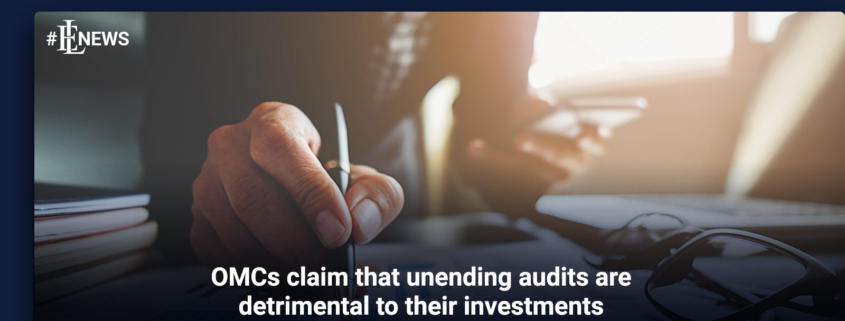OMCs claim that unending audits are detrimental to their investments
OMCs claim that unending audits are detrimental to their investments. They have denounced the government’s “unending audits” as anti-investment and demanded improved security and vigilance combat the menace of oil smuggling, which is estimated to be responsible for over Rs250 billion in revenue loss per annum.
According to the Oil Marketing Association of Pakistan (OMAP), in response to a letter from the Ministry of Energy’s Petroleum Division to 25 oil marketing companies (OMCs), including refineries, requesting an audit of their 2020-21 financial statements, the unending audits were sending the wrong signals to potential investors and had already harmed Pakistan’s image.
The OMAP noted that the letter to 25 companies for audit was unusual in that only two out of six refineries were named. According to the organization, out of 23 OMCs, 60 percent were those with individual market shares of less than 0.5 percent. It is the updated in a series of audits of this sector that have been ongoing since mid-2020. The Inquiry Commission, led by a senior officer of the Federal Investigation Agency, voluntarily provided all information necessary for conducting a forensic audit.
Before devoting countless person-hours to this next audit, the association requested that the Director-General Audit take time to present on the fact that there was a clearly defined checks and balances system spearheaded by the Oil and Gas Regulatory Authority (Ogra) were had provided all data currently being sought for the inland freight equalization margins.
The association asserts that a well-defined system of checks and balances already exists.
The regulator used a comprehensive mechanism to scrutinize the data, which was checked, counter-checked, and audited by Ogra’s independent auditors. In addition, the meetings on IFEM are led by Ogra every month, and all stakeholders are invited to participate. As a result, local refinery production and sales to OMCs, imports at the ports, availability at all depots, and major installations, such as Machhike, are well documented and readily available within this regulator-led system that has performed admirably over the past two decades and continues to do so.
Furthermore, deemed duty was being shared with the Petroleum Division regularly by the refining sector, and it was being audited as well.
The OMAP, on the other hand, acknowledged that smuggling was a significant problem that was affecting not only government revenues but also OMCs. According to the report of the Inquiry Commission, the government is losing an estimated Rs250 billion per year, and yet this issue has been completely ignored. “Where is an audit related to smuggling?”, the OMCs inquired, adding that the regulated companies were being targeted regularly even though their information was already available in the official files of the government.
Read more with EL news : Dir road construction project will be completed by the end of the year
In his statement, Mr. Fazil stated that smuggling petrol and diesel from a neighboring country had been a continuous problem for more than a decade. According to the author, the sale of low-quality products or products that do not meet quality specifications applicable to the Pakistani market is the result of this practice.
He said this as the gasoline was being pumped. Smuggled product from across the border was naphtha with an octane value of 60-70 RON, while the octane value for the Pakistani market was 90RON. For obvious reasons, its price was significantly lower than the applicable market price, resulting in the proliferation of the smuggling industry.
It has been recognised as a significant issue in the past by various forums. Still, no lasting solution has been found due to the security situation and suspected collusion between the drug traffickers and the local authorities. The Customs Department has proposed a variety of enforcement measures. Still, none have been successful, according to the OMAP, which also stated that smuggling had become the sole source of income for the locals involved.
His statement stated that the infrastructure of OMCs, which includes storage depots and hundreds of retail outlets, has consistently been threatened due to security concerns. It is up to law enforcement officials to address the situation. The possibility of expanding the number of outlets has also been acknowledged. Still, this investment would only be feasible if the inflow of illegal goods was stopped and improved security.
Keep up with Estate Land Marketing for news and updates.




Leave a Reply
Want to join the discussion?Feel free to contribute!